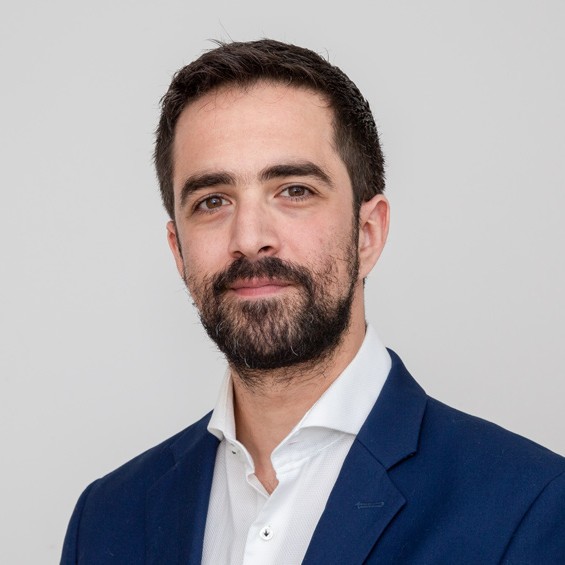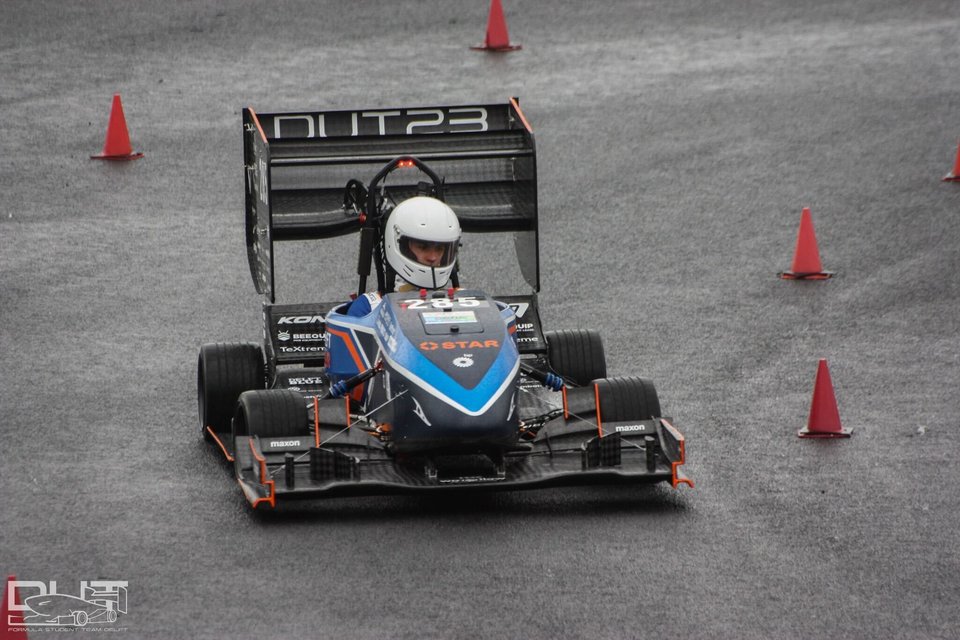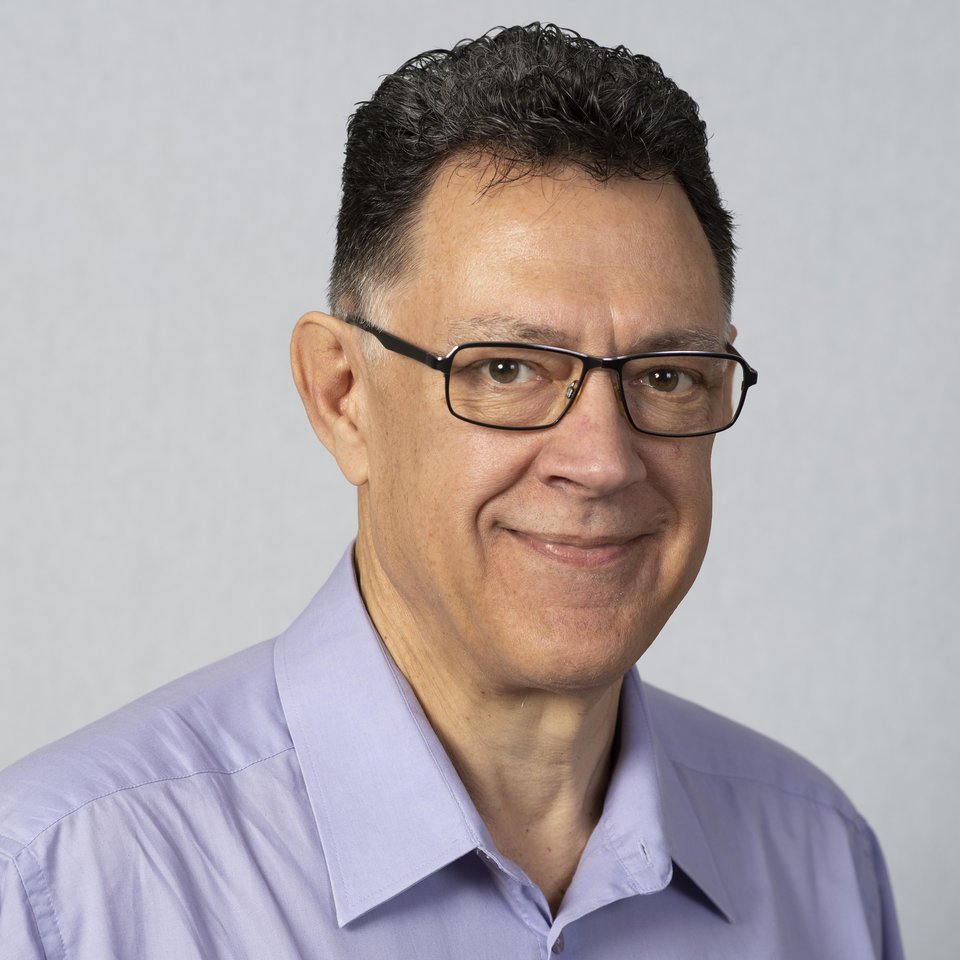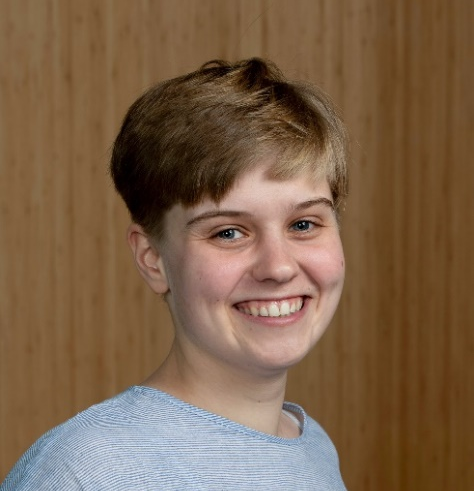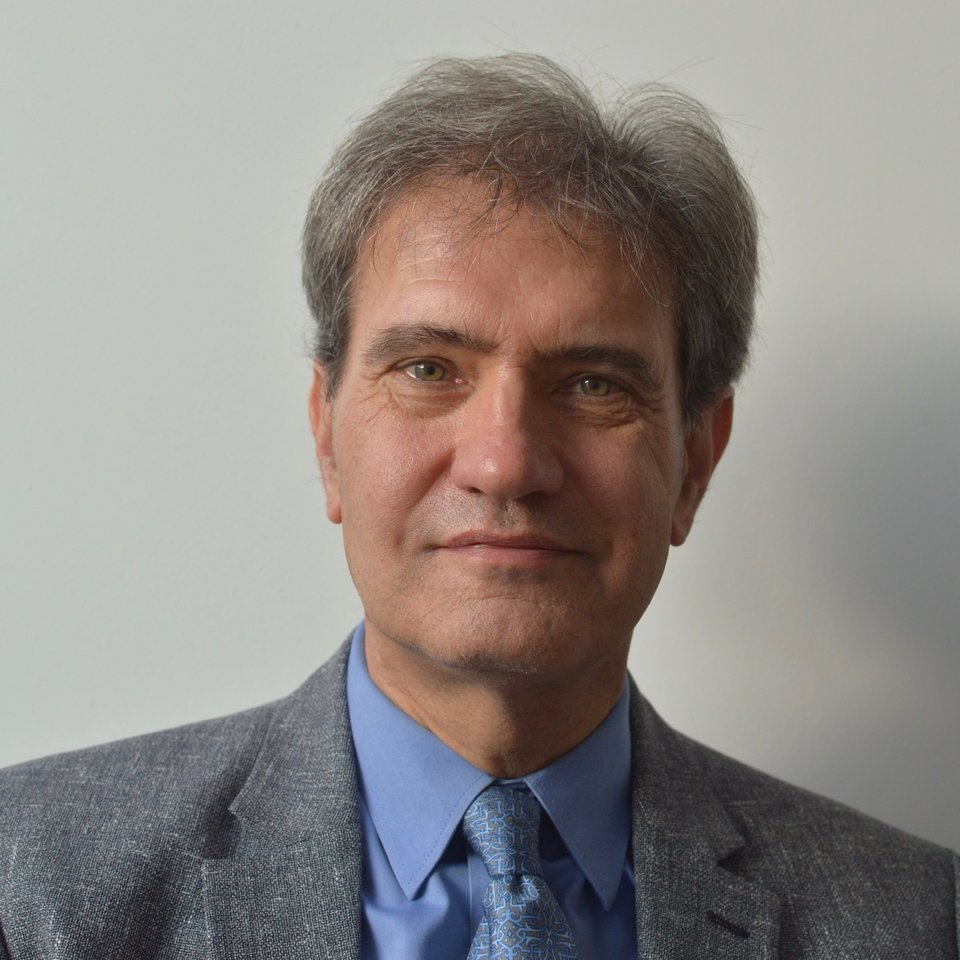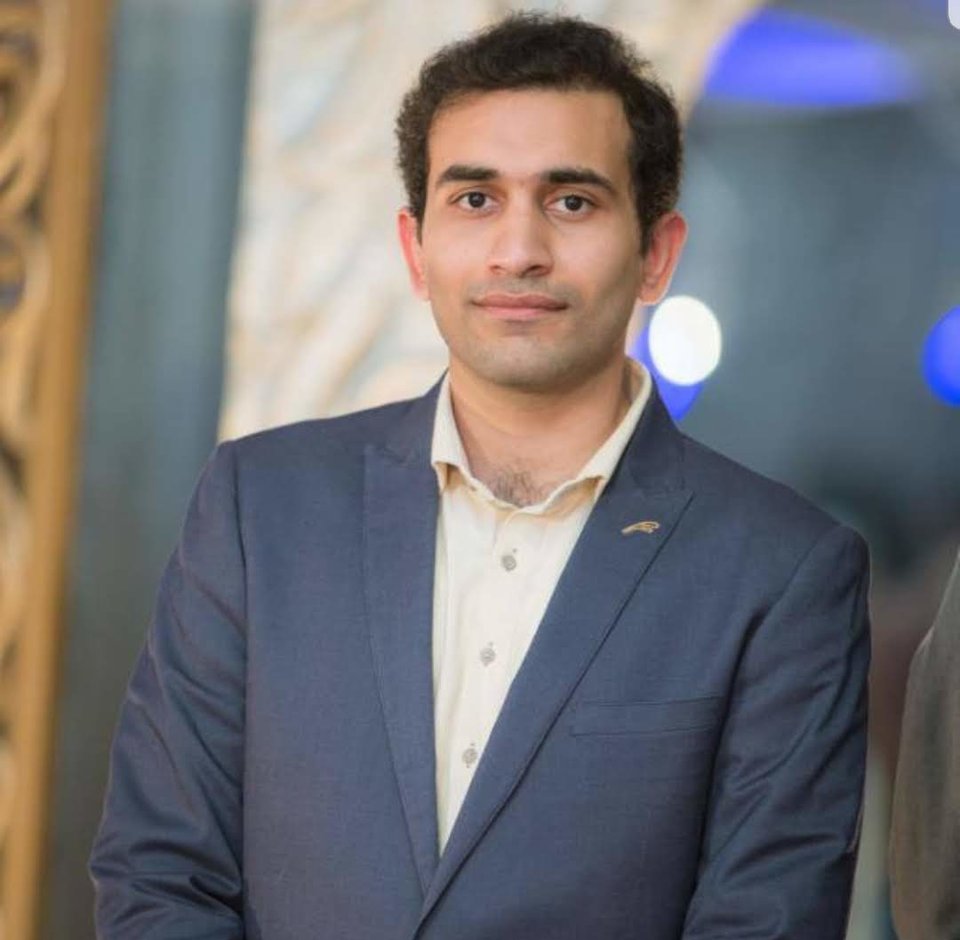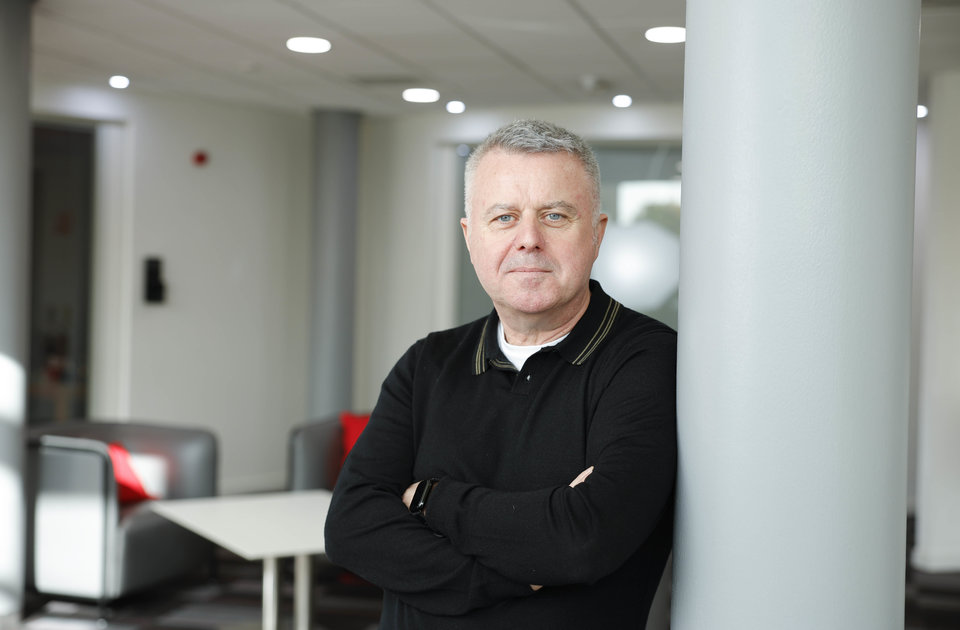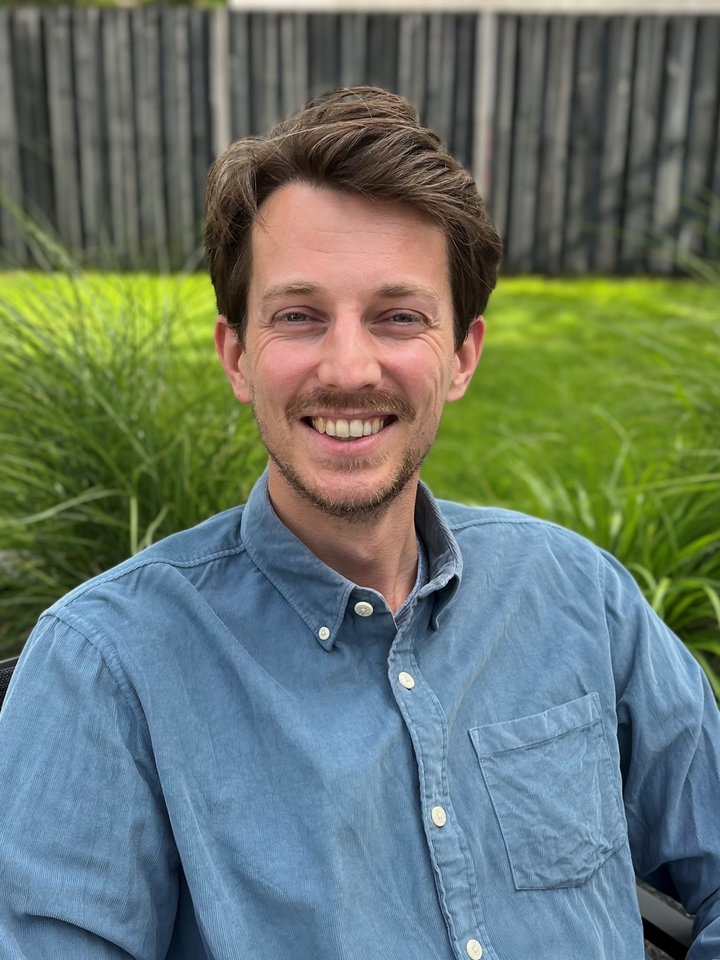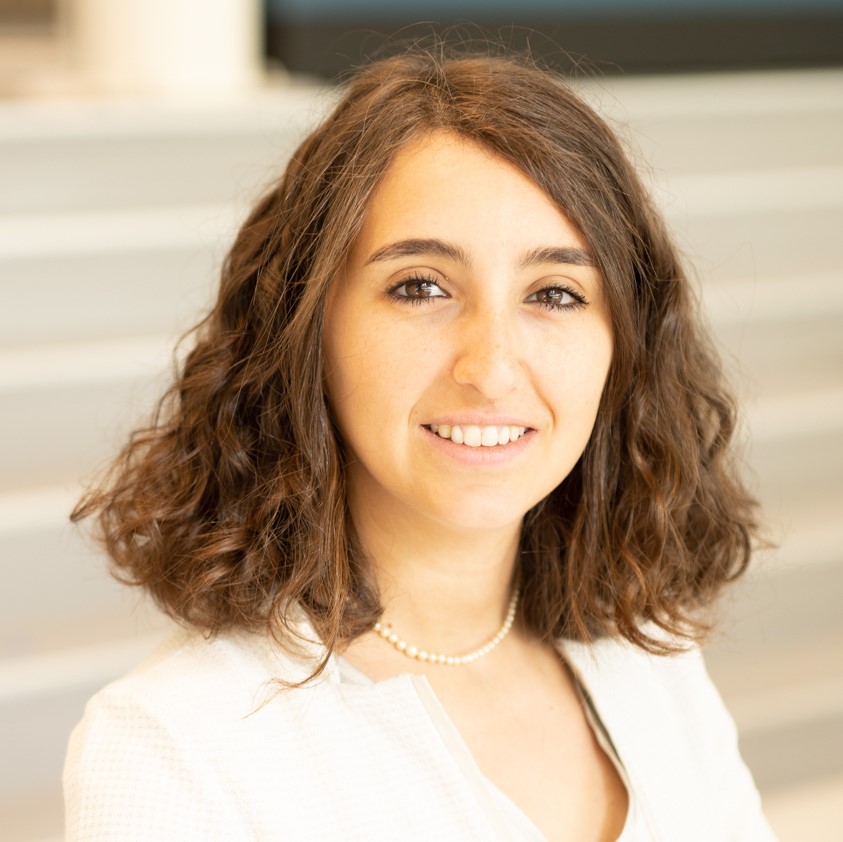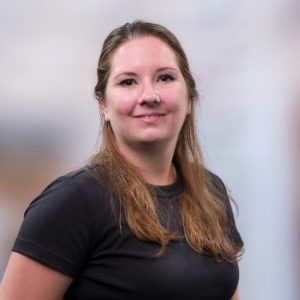User Summit 13 October 2023
13 oktober 2023 09:15 t/m 17:30 | Zet in mijn agenda
The DelftBlue user summit is for everyone using or interested in using DelftBlue or want to learn more about high performance computing. It promises to be a varied programme with talks by experienced DelftBlue users from various faculties. Fujitsu will talk about the extension in the next phase of DelftBlue that is coming up, SURF will present the role of HPC at a national level, and Formula Student Team Delft will give a presentation and display their electric race car.
We are looking forward to meeting you on 13 October!
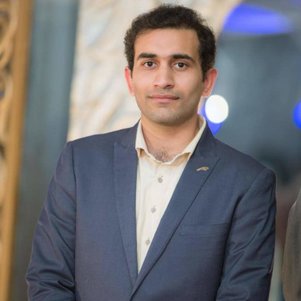
Haris Shahzad
High-performance aerodynamics computations for aerospace applications
I am a final year PhD student at TU Delft, working with Stefan Hickel and Davide Modesti on performing unprecedented simulations of fully resolved turbulent boundary layers under the influence of a permeable surface. I have experience running simulations on HPC clusters for more than 4 years now on both CPUs at HPC12 and Snellius and GPUs on Delft Blue, PizDaint and MeluXina GPU, having helped draft and participated in several successfully accepted NWO, PRACE and EuroHPC grants.
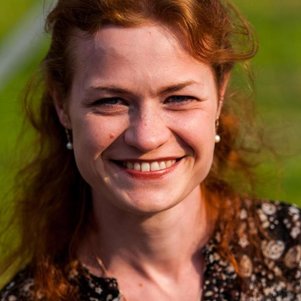
Natalia Chepiga
9 ½ phases of the interacting Majorana chain
We study critical properties of a Majorana chain in the presence of two competing interactions of the shortest possible range. The obtained phase diagram is very rich and contains nine different phases, including three floating, two Ising, and four gapped phases one of which has both commensurate and incommensurate regions. In addition, we detect a wide variety of quantum phase transitions: the supersymmetric tri-critical Ising lines; the Lifshitz critical line with dynamical critical exponent z = 3; several Kosterlitz-Thouless transitions, and the multicritical point in the 8-vertex universality class.
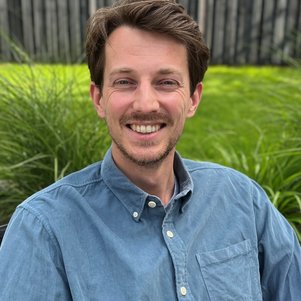
Arnoud Delissen
High-resolution topology optimization
Topology optimization is an increasingly popular tool for engineers to obtain structures that are high-performing in an automated way. This is a highly beneficial in applications such as for satellites and aircraft, which simultaneously need to be strong and lightweight, or in semiconductor equipment where a high dynamic performance is required. However, the geometric design resolution that can be attained is directly linked to the computational time required for the optimization. For instance, optimizing the structure of TU Delft's Flying V aircraft (65 meter wingspan) with a 10mm resolution requires multiple solutions to linear systems of equations with many billions of unknowns. This presents challenges both regarding memory usage and computation time, which are tackled by a combination of strategies such as domain decomposition, matrix-free operations, acceleration with GPUs, and multi-grid preconditioning. Together, these enables us to perform extremely large-scale topology optimization at very high speeds.
Arnoud Delissen completed his PhD at the TU Delft (department of precision and microsystems engineering, 3mE) in 2022. This research focused on topology optimization of dynamical and feedback-controlled systems for the semiconductor industry. Having a significant interest in high-performance computing and scaling to larger and faster optimizations, he pursued a postdoc at the same institution focusing on acceleration of topology optimization using GPUs. The aim of this research was to be able to design the structure of an entire airplane using topology optimization up to a very fine design resolution. Since April 2023, he is contributing his experience as part of the TNO department of opto-mechatronics. Here, he is developing topology optimization for next-generation optical equipment and also exploring multi-physical and interdisciplinary optimization approaches for various applications.
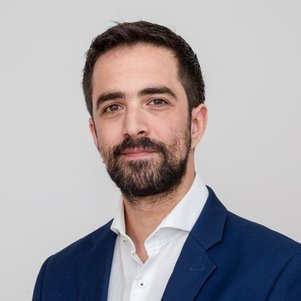
Theodoros Chatzivasileiadis
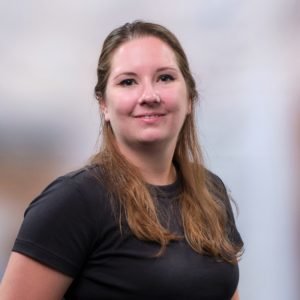
Liz Verbeek
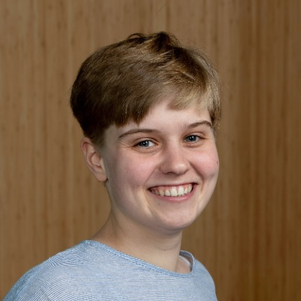
Thorid Wagenblast
Application of computational social science models to climate change
Climate change has emerged as one of the most pressing challenges of our time. In addition to mitigation efforts to reduce greenhouse gas emissions, it is crucial for humanity to adapt to our changing climate. The solutions to climate change problems are contingent on how society and economy are organized and how they evolve. At the SC3 lab, we study these driving forces of climate change in the context of adaptation as well as mitigation. We focus on the economy as part of a complex adaptative socio-environmental system, where heterogeneous agents interact, learn and adapt in an evolutionary manner, giving rise to macrophenomena and emergent properties at societal level.
We model the “agents of change” (e.g. households, firms, governments, …) in our complex society by combining micro and macro traditions, integrating behavioral aspects of adaptation and mitigation processes into macro level climate change policy models. To this extent, we employ agent-based modeling (ABM) and computable general equilibrium (CGE) techniques, enriched by micro-level empirical data on adaptive behavior.
In the context of climate induced economic effects at the global and local scale, we are interested in the interplay of physical changes with the different economic policies and actors. Moving beyond the confinement of direct effects, we are interested in the reaction of every economic agent autonomously in the context of the rest of the economy. To explore these effects, we run a CGE model at aggregated regional levels (NUTS2). In addition, we are currently working on coupling the CGE model with an ABM, providing the much-needed detail that CGE models normally ignore
Liz Verbeek is the scientific programmer of the SC3 team, where she works on the development, optimization and scalability of agent-based models. She holds a master’s degree in Computational Science and a bachelor’s degree in Artificial Intelligence from the University of Amsterdam.
Theodoros Chatzivasileiadis is a postdoctoral researcher at the SC3 center and the Netherlands Environmental Assessment Agency (PBL). He holds a PhD in Environmental Economics from Vrije Universiteit Amsterdam specializing in uncertainty regarding CGE models’ inputs and outputs, and climate stimuli perception from different economic sectors. At SC3, he focuses on the effects of climate action on the economy, climate and energy econometrics and CGE applications for policy making.
Thorid Wagenblast is a PhD candidate at the SC3 center. She holds a master’s degree in Engineering and Policy Analysis (awarded Cum Laude) from Delft University of Technology. Her PhD research focuses on the interplay between climate change adaptation, social tipping points, and policy making. Currently, she is developing an agent-based model to simulate endogenous policy changes resulting from environmental changes and societal processes. Eventually, she aims to provide insights in how to achieve transformations in climate change adaptation before experiencing catastrophes.
The Center for Social Complexity of Climate Change (SC3) is a research lab at the Multi Actor Systems Department of the Faculty of Technology, Policy and Management. Its research explores effects of climate change adaptation and mitigation policies by combining insights and methods from social sciences – economics, psychology, sociology, geography – with computational models of societies.
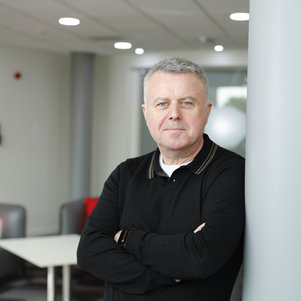
John Walsh
Strategic Direction in AI – Use case driven, Explainable and Ethical
John has over 30 Years’ experience in the technology industry, particularly Architecture, Consulting and Software development.
He has held multiple roles within Fujitsu creating solutions with Customers in Financial Services, Manufacturing, Law Enforcement, Retail, Telecommunications, and the Public Sector. John has a keen interest in R & D having spent 3 years working on behalf of Fujitsu Laboratories in applied research (AI - ML, Graph Generation & Deep Tensor). This was followed by 2 years in Quantum inspired technologies and QUBO design. His current interest is in the combination of accelerating AI learning models using Quantum Techniques. He has a deep interest in the mathematics which underpins AI Ethics and the detection of bias in training data sets. He is an expert in the field of real-time computing and signalling processing. John is at his best when given a business challenge and can apply technology to solve it, and a key element of his remit is to provide Customers with early insight and adoption to Fujitsu Laboratory applied research. John is a Computer Scientist and a Mathematician. John is married with one child and when not being the European CTO works on the family horse farm in Ireland and is a keen motorcycle racer.
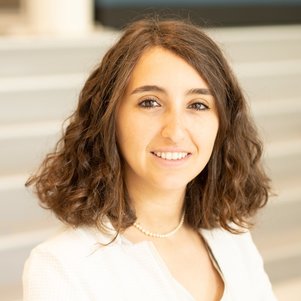
Bianca Giovanardi
Modeling the world: advances in high-performance computational modeling for solid mechanics
Dr. Bianca Giovanardi is an assistant professor in the Department of Aerospace Structures and Materials at TU Delft. Her expertise lies in high-performance computational modeling of multi-physics coupled problems across diverse domains, including geophysics, biomechanics, aerospace, forensics, and defense.
Prior to joining TU Delft in 2020, she served as a postdoctoral associate in the Department of Aeronautics and Astronautics at MIT, where she applied high-performance computing to nonlinear solid mechanics, fracture mechanics, and fluid-structure interaction. She earned her Ph.D. in Computational Mathematics from Politecnico di Milano in 2017.
Her past and current research efforts have been sponsored by the US Air Force Office of Scientific Research, the US Army Research Laboratory, NASA, and IBM. Dr. Giovanardi's achievements include awards such as the 2nd Best Presentation at the World Congress on Computational Mechanics (2022), the Delft Technology Fellowship (2020), Women in Aerospace Engineering recognition (2019), Caltech Young Investigator Lecturer (2019), and the Roberto Rocca Doctoral Fellowship (2015).
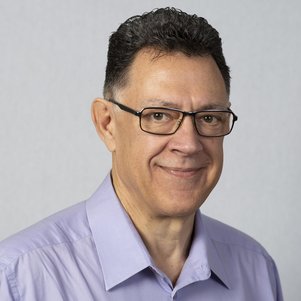
Walter Lioen
The importance and role of High-Performance Computing for the Netherlands
Since 1984 SURF has housed and managed the Dutch national supercomputer and has supported scientific researchers in making optimal use of it. We look back on more than 35 years of supercomputing in the Netherlands, but also take a look at the future.
In 2021, the seventh-generation Dutch national supercomputer called Snellius was inaugurated by Her Majesty the Queen Máxima. Last August, we took Phase 2 into production and early next year we will have our final GPU-based Phase 3 extension.
We are going to talk briefly about the large-scale computing strategy document that SURF has been working on and for which SURF is completing a stakeholder consultation process.
Using a couple of use cases, we will demonstrate the importance of supercomputing.
Walter Lioen is Domain Manager Research Services at SURF (Amsterdam, The Netherlands). Walter’s teams are responsible for, among other things: the Dutch national supercomputer (Snellius), and the Data Archive for long-term data storage (tape library). In addition to the operational management of these infrastructures, the teams are also responsible for: user support, application support and visualization support. In addition to the High Performance Computing & Visualization team and the Data Preservation Services team, Walter is also responsible for the High Performance Machine Learning team and the ServiceDesk Core Team.
Walter studied mathematics at the University of Amsterdam (UvA) and worked from the mid-eighties as a scientific programmer at the Center for Mathematics and Computer Science (CWI) in Amsterdam. In that capacity he used virtually all supercomputers in the Netherlands working on highly efficient implementations of algorithms in numerical mathematics and computational number theory. From 2001 he worked as a software engineer on predictive analytics software at Data Distilleries, which was acquired by SPSS in 2003. From 2007 he works at SURF and supports researchers in the optimal use of supercomputers. Here, Walter has been and still is actively involved in the European supercomputing projects DEISA, PRACE and EuroHPC.
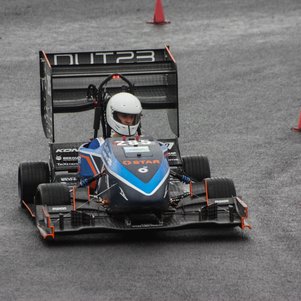
Fomula Student Team
Designing a formula student aero package through CFD analysis by Formula Student Team Delft
At Formula Student Team Delft, every year, a team of approximately 90 students from all over the word designs, builds, tests and races a high-performance race car. The formula student competitions together form the largest engineering design competition series held anywhere in the world, with the most prestigious one having been won by Delft a record number of five times since its inception in 1999.
None of this would have been possible without a constant search to extract the maximum from every bit and piece of the car, fueling constant and fierce innovation in every department. In the aerodynamics department this innovation has caused the cars to extract so much potential from the air around it that the TU Delft built car is on par with a formula one car in aerodynamic performance. A key driving factor in enabling this possibility has been the support from DelftBlue, enabling the department to optimise the car for any driving condition.
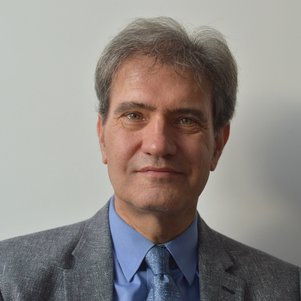
Martin van Gijzen
Closing session
Martin van Gijzen received Master's and Ph.D. degrees in Applied Mathematics from the Delft University of Technology in 1989 and 1993, respectively. He carried out his Ph.D. research at TNO Building and Construction Research, now DIANA FEA.
In 1994, he became a Postdoctoral Researcher in Mathematics at Utrecht University where he developed parallel algorithm to simulate global ocean circulation. In 1997, he joined the research staff at TNO Physics & Electronics Laboratorium, where he was a project leader on underwater acoustics.
In 2002 he accepted a position as a Senior Scientist in Parallel Algorithms at CERFACS in Toulouse, France. In 2004, he joined the faculty of the Delft Institute of Applied Mathematics at the Delft University of Technology, where he is now a Professor in High-Performance Computing. He recently succeeded Kees Vuik as scientific director of DHPC.
Please register on aanmelder before 6 October.
09.15 Welcome and registration
10.00 hrs. Opening
10.05 hrs. High-performance aerodynamics computations for aerospace applications by Haris Shahzad (AE)
10.30 hrs. 9 ½ phases of the interacting Majorana chain by Natalia Chepiga (AS)
11.00 hrs. Coffee break
11.20 hrs. High-resolution topology optimization by Arnoud Delissen (TNO)
11.50 hrs. Application of computational social science models to climate change by Liz Verbeek, Theodoros Chatzivasileiadis and Thorid Wagenblast (TPM)
12.20 hrs. AI art software
12.30 hrs. Lunch break with poster session and AI art
13.45 hrs. Strategic Direction in AI – Use case driven, Explainable and Ethical by John Walsh, Fujitsu Europe Chief Technology Officer
14.15 hrs. Modeling the world: advances in high-performance computational modeling for solid mechanics by Bianca Giovanardi (AE)
14.45 hrs. Coffee break
15.15 hrs. The importance and role of High-Performance Computing for the Netherlands by Walter Lioen, SURF
15.45 hrs. Designing a formula student aero package through CFD analysis by Formula Student Team Delft
16.05 hrs. Closing session by Martin van Gijzen (DHPC)
16.30 hrs. Drinks & bites
The DelftBlue user summit takes place in X (building 37) on the TU Delft campus.
